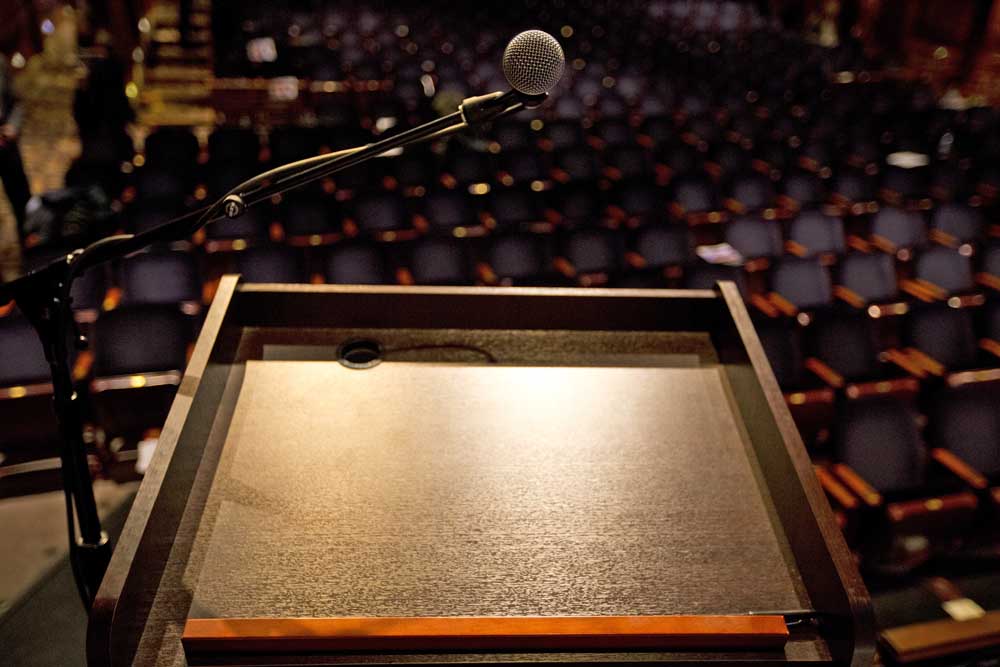Guest column: Bethlehem Inn sets an example for Earth Day
Published 12:00 am Sunday, April 22, 2018

- Guest Column
Bethlehem Inn has been a leader in supporting people experiencing homelessness in Central Oregon since 1999. Now, it’s taking its work to a new level.
The Inn’s facility renovation and expansion will not only allow it to serve more individuals and families, but it will do so at a lower cost and with less environmental impact.
It is setting a great example for other local organizations, a story worth telling as Bend celebrates Earth Day and begins developing its climate action plan.
The Inn’s mission is to help people in crisis transition into a life of self-sufficiency. The new facility will help fulfill the mission by doubling the number of beds for families, increasing beds for singles adults by 30 percent, and adding a commercial kitchen and program space.
In addition to boosting its mission, Bethlehem Inn’s new buildings are super energy efficient and produce much of the energy they consume.
In partnership with Energy Trust of Oregon, the Inn invested in purposeful design, enhanced insulation, energy-efficient lighting, air sealing, efficient windows and solar panels to produce electricity.
As a result, its total energy use will be substantially less, and its contribution to climate change much lower, than a similar-sized building built to standard energy code.
The Inn’s project shows the synergistic benefits of investments in clean energy: more people served at a lower cost with fewer environmental impacts. It’s an example for the entire community to follow!
Thankfully, we have other great examples to follow in Bend. Three local organizations — Worthy Brewing, Whole Foods and Central Oregon Community College — immediately come to mind.
Worthy invested in one of the largest solar electric arrays in Central Oregon and in a solar hot water system that pre-heats the water used in its brew house. They’ve also got a super-efficient boiler and a smart cooling system that delivers cooling only when it’s needed.
Whole Foods recently retrofitted its existing equipment and building — adding doors on refrigerated cases and 269 solar panels on the roof.
COCC has been leading the way in the construction of efficient new buildings, adding three buildings in the last five years built to higher-than-code, energy-saving standards. The most recent example is its new Tech Center in Redmond. Together, these buildings show that, new construction or retrofit, there are viable solutions for all types of organizations to save energy.
The same opportunities exist in residential buildings. Last September, The Environmental Center’s annual Green Tour showcased new energy-efficient apartments, a remodeled “net zero” home and its new accessory dwelling unit (together they produce as much energy as they use), a radical efficiency makeover of a 1970s rambler and several other new homes.
Our challenge now is to accelerate the construction of super-efficient, solar-powered buildings in Bend and Central Oregon. Fossil fuel-based energy is leading us to a future of climate disruption, which here in Central Oregon likely means a less reliable snowpack, more drought and conflicts over water, and larger and more frequent wildfires. We are also likely to see fossil fuel energy getting more expensive, as government policies put a price on carbon pollution.
Buildings account for 40 percent of all the energy we use in the U.S. As our region enters another period of rapid growth, the decisions we make about our buildings today will be with us for many years to come. Choosing energy efficiency and solar are the smart choice, saving us money and helping us avoid the worst outcomes of climate change.
In honor of Earth Day, let’s all follow the example of Bethlehem Inn and other locals.
Let’s commit to building as many clean energy buildings as possible, reflecting our community’s pro-environment values as we build Central Oregon.
– Mike Riley is executive director of The Environmental Center. Gwenn Wysling is executive director of Bethlehem Inn.








